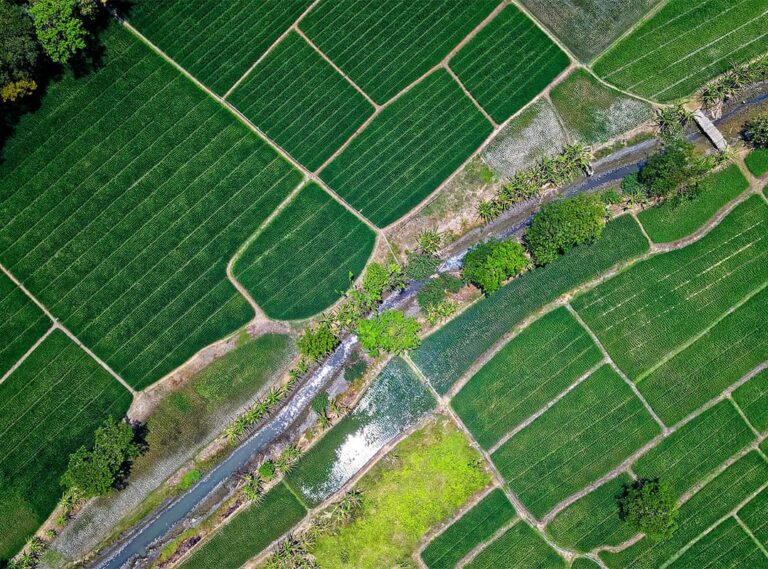In general, the agricultural sector uses a variety of marketing strategies, approaches and tools, as the industry itself is very diverse and consists of very different players. Nevertheless, we will try to identify common features and point out the most relevant marketing practices. Here are the main elements of an agricultural enterprise’s marketing mix:
- Branding and positioning. The branding and positioning of an agricultural enterprise are key to its success in the market, attracting investment, establishing partnerships and developing exports. A strong brand allows an enterprise to stand out among competitors, attract consumers’ attention and create a positive image, which helps to increase sales and increase the value of the brand itself. In addition, a strong brand inspires confidence among potential investors and partners, which helps to attract additional financial resources and develop strategic partnerships. Finally, effective positioning of export opportunities allows an agricultural enterprise to expand the geography of its business, create competitive advantages and ensure stable exports of products outside the country;
- Digital marketing ecosystem. The digital marketing ecosystem is a necessary component of an agricultural company’s marketing strategy in the modern business environment, as it allows for effective interaction with customers, optimization of sales and promotion processes. It includes the integration of all digital platforms of the company to conduct effective marketing campaigns, including the website, social media pages, mobile application, messenger channels, email newsletter and other elements depending on the specifics of the business. Such an ecosystem reflects the company’s professionalism and is functionally used to promote its products in the digital environment, allowing agricultural firms to become more attractive and competitive in the market, increase the effectiveness of marketing efforts and ensure greater interaction with the target audience;
- Content marketing. The digital marketing ecosystem will not be effective if it does not have useful content on issues of concern to market participants. Content marketing is an integral part of an agricultural company’s marketing strategy, as it allows creating and distributing valuable and relevant content that attracts the attention of the target audience and helps to increase their interest in the company’s products. This includes review articles, photos, videos, and infographics that inform and educate potential consumers, highlighting the benefits and characteristics of products, as well as providing useful tips and tricks for using them. Such content helps agricultural firms promote themselves as industry experts, increase consumer awareness of the brand, maintain long-term customer relationships, and create a foundation for sales;
- SEO promotion. SEO promotion for an agricultural company plays an important role in ensuring the presence of its products and services in search engines, which helps to attract the target audience and increase traffic to the website. The agricultural sector is one of those industries where creating interesting content for SEO promotion is not a problem. Review articles using keywords and phrases that are relevant to the industry, internal website optimization, and building an external link mass are the methods that will help you rank in the top of Google’s organic search results. This, in turn, will help to attract more representatives of the target audience and increase the likelihood of conversions;
- Advertising in digital channels. Traditional advertising methods such as TV, radio and print media are not used in the B2B activities of agricultural enterprises, but more and more agricultural companies are switching to digital advertising, which includes advertising on search engines, banner ads on specialized agricultural websites, advertising on social media, etc. Advertising in digital channels is becoming an integral part of B2B marketing for agricultural companies, as it is an effective way to attract attention and interact with potential customers. By using contextual advertising, banners, social media advertising, and other digital tools, agricultural companies can achieve a greater market presence, improve their image, and attract new customers;
- Participation in industry events. Participation in industry events is an important element of the marketing strategy for agricultural enterprises, as it provides an opportunity to meet potential customers and partners in person, demonstrate their products and services, and engage in a dialogue with experts and competitors in the industry. Participation in conferences, seminars, fairs, exhibitions and other events allows agricultural companies to increase their visibility, maintain relationships with current or former customers, attract new partners and improve their image, which contributes to the development and positioning of the company as an expert in the agricultural market;
- Direct marketing. The organization of field days is an important part of the marketing strategy for agricultural enterprises, which provides an opportunity for direct contact with potential customers and partners. This form of direct marketing is extremely effective, as it allows you to demonstrate products and technologies on site, exchange experience and information, dispel fears and uncertainties of the counterparty, as well as receive feedback on the possibility of further cooperation and the overall market reaction to the company’s proposals;
- Cooperation and collaboration. Cooperation with other market participants can be strategically important for the marketing of agricultural enterprises. On the one hand, such initiatives help to increase production efficiency, reduce costs, mitigate risks, and increase market competitiveness. On the other hand, joint activities allow for purely marketing effects, namely expanding the audience and potential market through joint marketing campaigns and integrating each other’s image into their own branding. Cooperation and collaboration help to attract more consumer attention, increase brand awareness, and create a common image that contributes to sales growth and development of agricultural enterprises as participants in cooperation;
- After-sales customer support. After-sales customer support in the agricultural sector is an integral part of a successful marketing strategy by interacting with customers after the purchase, providing advice on product operation and any other issues. This interaction helps to increase customer satisfaction, maintains brand loyalty, and strengthens the company’s reputation, which generally leads to repeat purchases and the ability to recommend the brand to third parties.
These are just some of the key marketing tools. The choice of specific tools depends on the company’s characteristics, business specialization, target audience, market conditions, products, and strategy.



